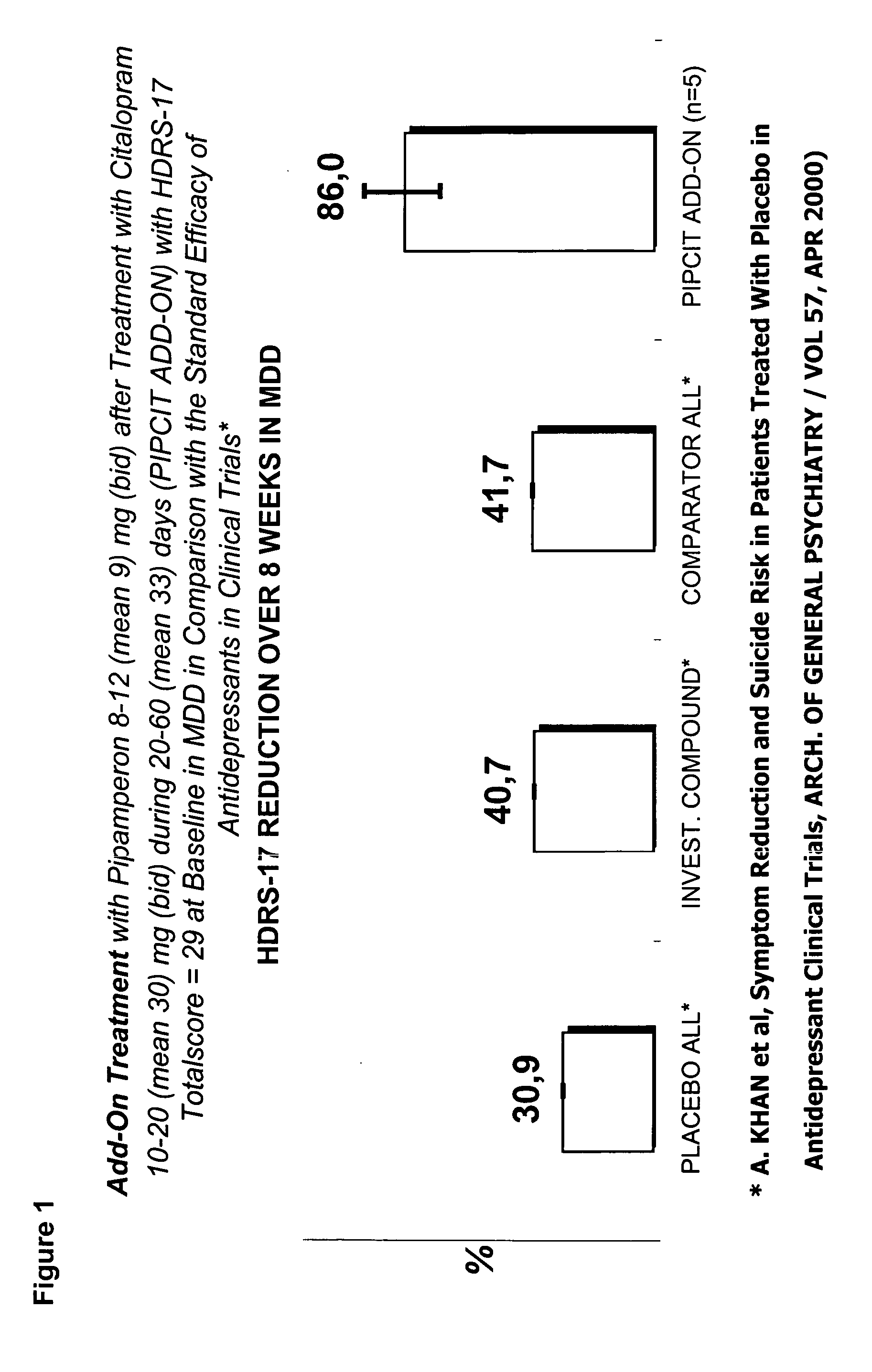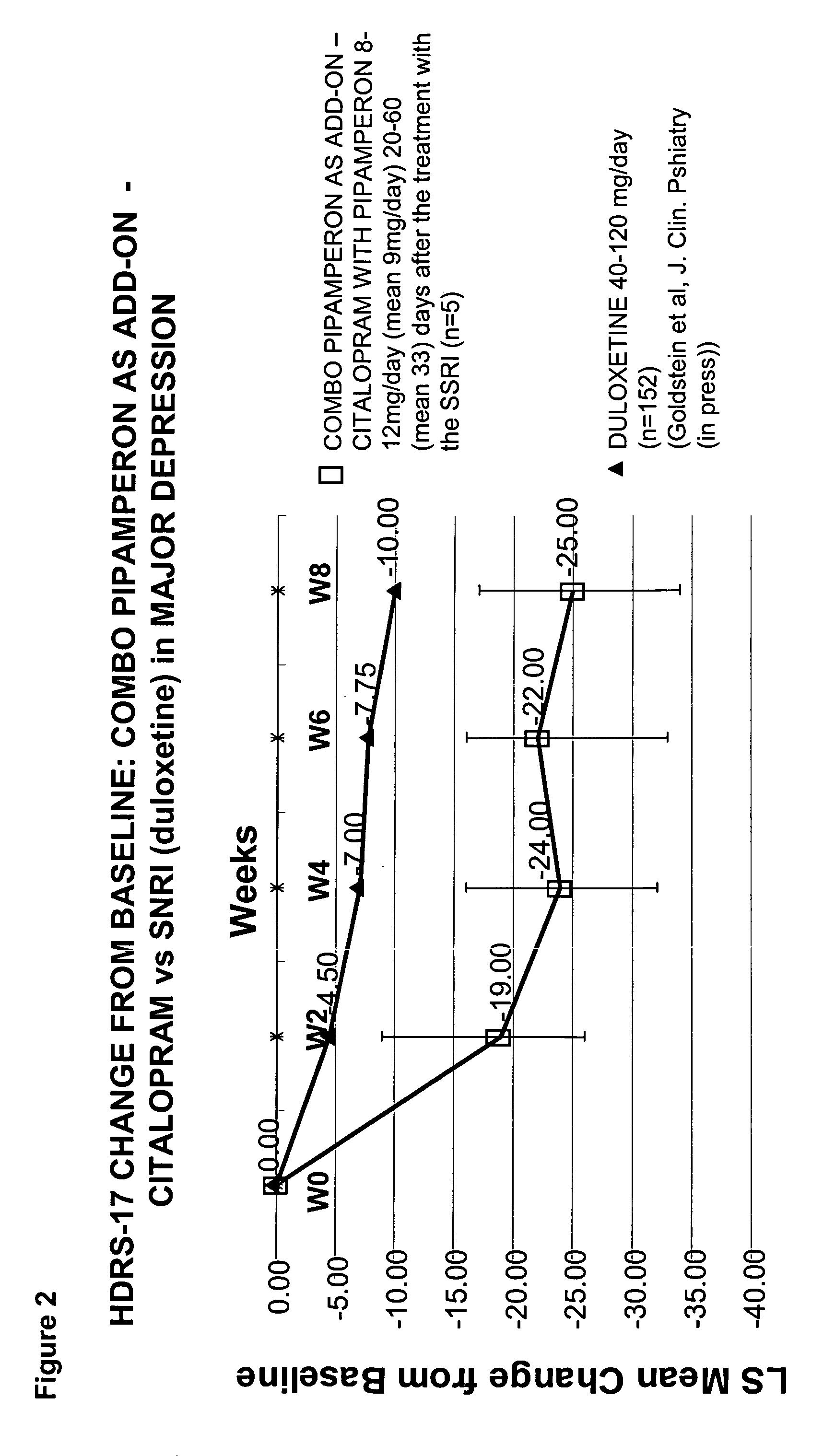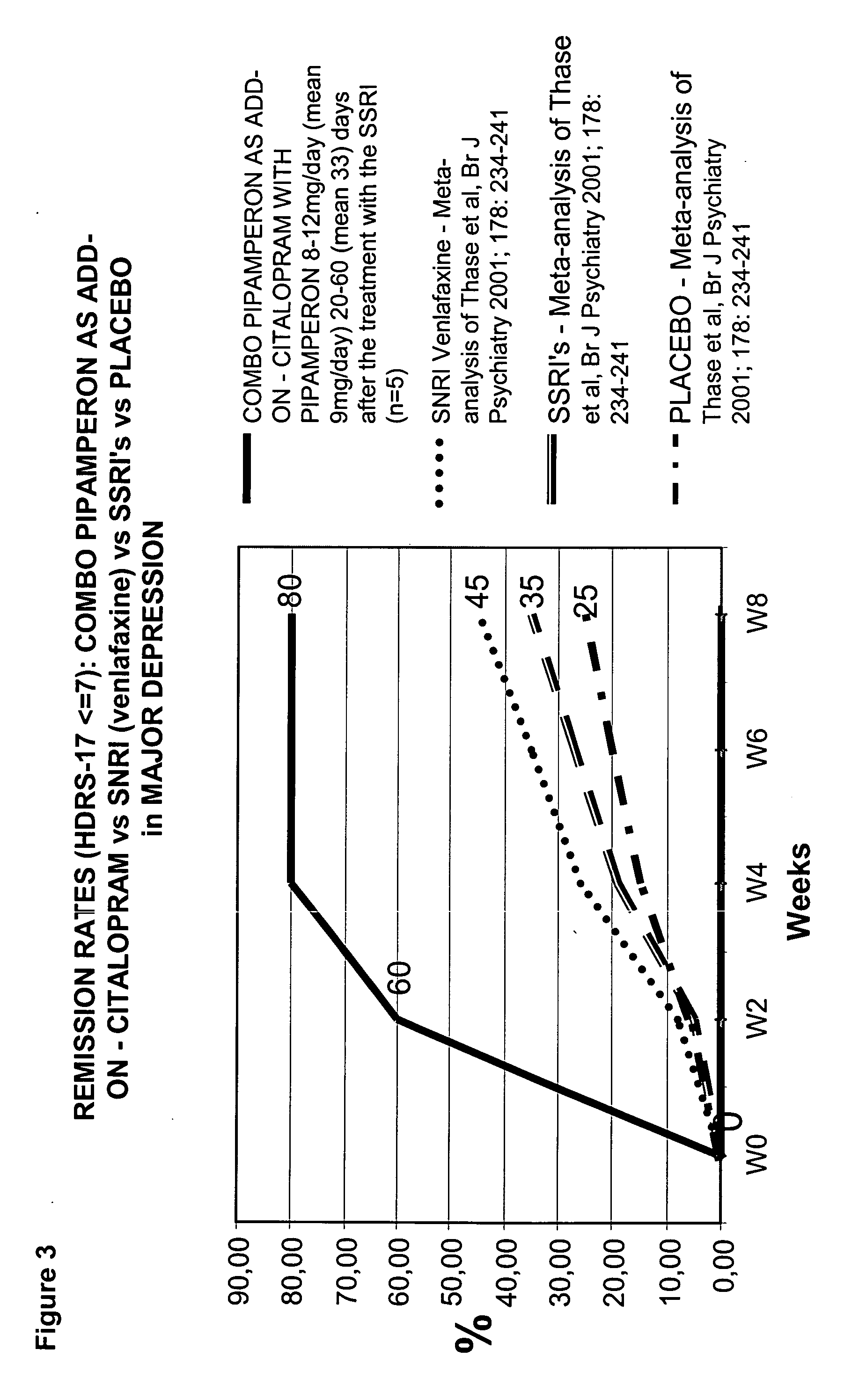Use of D4 and 5-HT2A antagonists, inverse agonists or partial agonists
a technology of inverse agonists and antagonists, applied in the field of neuropsychiatry, can solve the problems of inability to achieve remission and inadequate early treatment, and achieve the effect of accelerating accelerating the onset of the therapeutic effect of said second compound
- Summary
- Abstract
- Description
- Claims
- Application Information
AI Technical Summary
Benefits of technology
Problems solved by technology
Method used
Image
Examples
example 1
Measuring pKi Values of Test Compounds
[0682]In Table 1, the pKi values of test compounds are given for each of the dopamine receptors, 5HT receptors, adrenergic receptors and the histamine1 receptor. The affinity of test compounds for the respective receptors has been performed according to conventional procedures known in the art.
[0683]An indication “0” means that no affinity has been measured between the test compound and the receptor.
[0684]The columns displaying the pKi values for the D4 and the 5-HT2A receptor are filled with dark grey. pKi values between 8 and 9 and higher than 9 are represented by light grey boxes.
example 2
Foregoing Pipamperon-Citalopram Treatment in Major Depressive Disorder: a Placebo and Active Controlled Period Finding Clinical Trial
[0685]Table 2 represents the set-up of a clinical trial comprising for treatment groups:
[0686]Group Plc—Active / Day 0 represents the group receiving 10 mg citalopram, twice a day, starting the first day (Day 0) of active treatment in the clinical trial. This administration regime is also indicated as the mono therapy.
[0687]Group Pip—Active / Day 0 represents the group receiving a combination of 4 mg pipamperon and 10 mg citalopram, twice a day, starting the first day (Day 0) of active treatment in the clinical trial. This administration regime is also indicated as the non-foregoing combo therapy.
[0688]Group Pip—Active / Day 4 represents the group receiving 4 mg pipamperon, twice a day, starting the first day (Day 0) of active treatment in the clinical trial, followed by a combination of 4 mg pipamperon and 10 mg citalopram, twice a day, starting the fifth (...
example 3
Combo Pipamperon-Citalopram: Therapeutic Use in Major Depression
Purpose
[0705]Pipamperon (1′-[3-(p-Fluorobenzoyl)propyl]-[1,4′-bipiperidine]-4′-carboxamide), the active ingredient of Dipiperon (Janssen-Cilag B.V), administered to patients in a dose ranging between 8 and 12 mg is claimed via its specific pharmacological properties to be a booster of the antidepressant effect of the selective serotonin re-uptake inhibitor citalopram. Preferably, pipamperon is administered daily at least 4-5 days before administering said antidepressant. The mechanism of boosting of pipamperon has to deal with (i) the selective affinity for the dopamine-4 (D4) receptor with a pKi value equal to or higher than 8 towards the D4 receptor and less than 8 towards other dopamine receptors, and (ii) the selective affinity for the 5-HT2A receptor with a pKi value equal to or higher than 8 towards the 5-HT2A receptor and less than 8 towards other 5HT receptors. This semi-naturalistic open label study investigate...
PUM
| Property | Measurement | Unit |
|---|---|---|
| pharmaceutical composition | aaaaa | aaaaa |
| mental disorder | aaaaa | aaaaa |
| structure | aaaaa | aaaaa |
Abstract
Description
Claims
Application Information
 Login to View More
Login to View More - R&D
- Intellectual Property
- Life Sciences
- Materials
- Tech Scout
- Unparalleled Data Quality
- Higher Quality Content
- 60% Fewer Hallucinations
Browse by: Latest US Patents, China's latest patents, Technical Efficacy Thesaurus, Application Domain, Technology Topic, Popular Technical Reports.
© 2025 PatSnap. All rights reserved.Legal|Privacy policy|Modern Slavery Act Transparency Statement|Sitemap|About US| Contact US: help@patsnap.com



